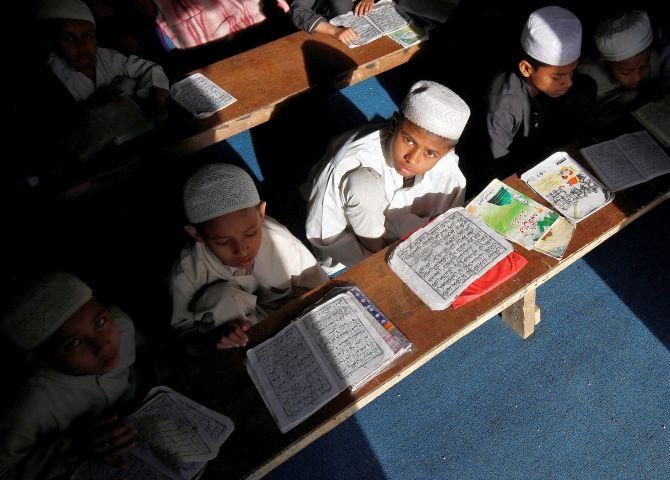The Supreme Court on Monday issued notice on a plea challenging the constitutional validity of the National Commission for Minorities Act 1972 and various governmental schemes for the religious minorities at the expense of taxpayer money.
A Bench comprising Justices R.F Nariman and SR Bhat issued a notice on a plea filed by Sanatan Vedic Dharam. The plea challenges constitutionality of the Act for being discriminatory.
The writ petition filed by advocate Vishnu Shankar Jain, also challenges various financial benefits and educational grants given to minorities like Maulana Azad National Fellowship for students of minority communities and seeks the court to declare them violative and discriminatory.
The writ petition has also challenged the constitutional validity of National Minority Commission, established by a Parliamentary law on the ground that Parliament cannot, by law, discriminate or make any law for minority religious groups.
The petition further contends that the government without notifying minorities as socially and educationally backward classed under Article 15(4) of the Constitution, the Parliament cannot lawfully make schemes for the benefit and protection of minorities.
The benefit envisioned under Article Article 15(4) can be extended to only those communities who are found “socially and educational backward” classes of citizens by a commission established under Article 340 of the Constitution.
The petition states that the taxpayer money cannot be utilized by the government to “appease a section of society at the cost of national integration”.
The petition also argues that the petitioners are unconstitutionally deprived of benefits available to similarly situated members of religious minorities, and treating the Muslims above law violates Article 14, 15 and 27 of the Constitution.
The petitioners allege that the government is giving undue to Waqf and Waqf properties, denying similar benefits to the institutions of Hindu community like Trusts, Mutts and Akharas.
The plea urged the top court to declare that the Centre has no right, jurisdiction to give special treatment and benefits to minority communities and hence be declared violative of the Constitution.





